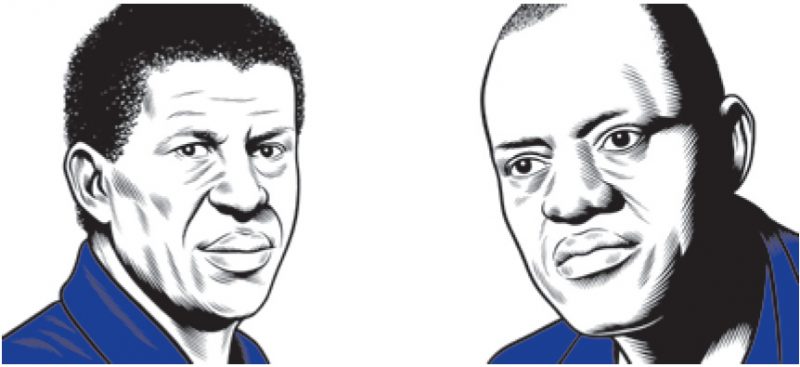The past dozen years have been good to Congolese writer Alain Mabanckou, who has garnered critical and popular success in France with novels such as Broken Glass and Memoirs of a Porcupine; earlier this year he won the Grand Prix de Littérature Henri Gal (awarded by L’Institut de France by recommendation of the hallowed Académie Française), in recognition of a body of work that includes nine novels, a half-dozen volumes of poetry, and four essay collections; and though his best-selling-author status, charisma, flamboyant personality, and trademark gavroche cap have made Mabanckou a natural media darling and poster boy of French integration-through-writing-in-French, the author is fond of paraphrasing Frantz Fanon and his resistance to the notion of being hemmed in by “the fact of blackness.”
Mabanckou lives in Santa Monica, and teaches at UCLA, but he is often on the road, attending literary festivals and events the world over (his work has been translated into over a dozen languages). Early this year in Port-au-Prince he crossed paths with his old friend Dany Laferrière, the Haitian writer (and former TV weatherman!), whom he has known since the ’90s, when Mabanckou was starting out and Laferrière was already well known. Laferrière, who is a (baker’s) dozen years older than Mabanckou, published his first novel, How to Make Love to a Negro Without Getting Tired, in Canada in 1985. He has since published over twenty books of fiction and nonfiction, and has also enjoyed critical as well as popular success in France, where, in 2009, he was awarded the Prix Médicis for L’Énigme du retour. Though he currently lives in Montreal, Laferrière spent most of the ’90s in Miami, and subsequently wrote with great passion about the United States, going so far as to say that he considers himself American, having lived since 1976 in North America (he returned to Montreal in 2002).
While at the Festival Étonnants Voyageurs in Port-au-Prince, in the early days of February 2012—two years after the horrific earthquake that devastated Haiti, on January 12, 2010—Dany Laferrière and Alain Mabanckou stayed at the Karibe Hotel, a two-tone building nestled in the hills of the city, with gabled roofs, a majestic marble lobby, and an outdoor courtyard lush with foliage. As the two literary friends set up shop in the courtyard’s open-air gazebo, under a shady tangle of cedar, pine, and mango—and throughout their conversation—workmen could be heard rebuilding the partially demolished hotel.
—Philippe Aronson
I. TRAVEL
DANY LAFERRIÈRE: Over the last two decades or so, I have noticed that third-world writers—that is to say, African and Caribbean writers—have been traveling more and more extensively. They get invited hither and thither because they...
You have reached your article limit
Sign up for a digital subscription and continue reading all new issues, plus our entire archives, for just $1.50/month.
Already a subscriber? Sign in





